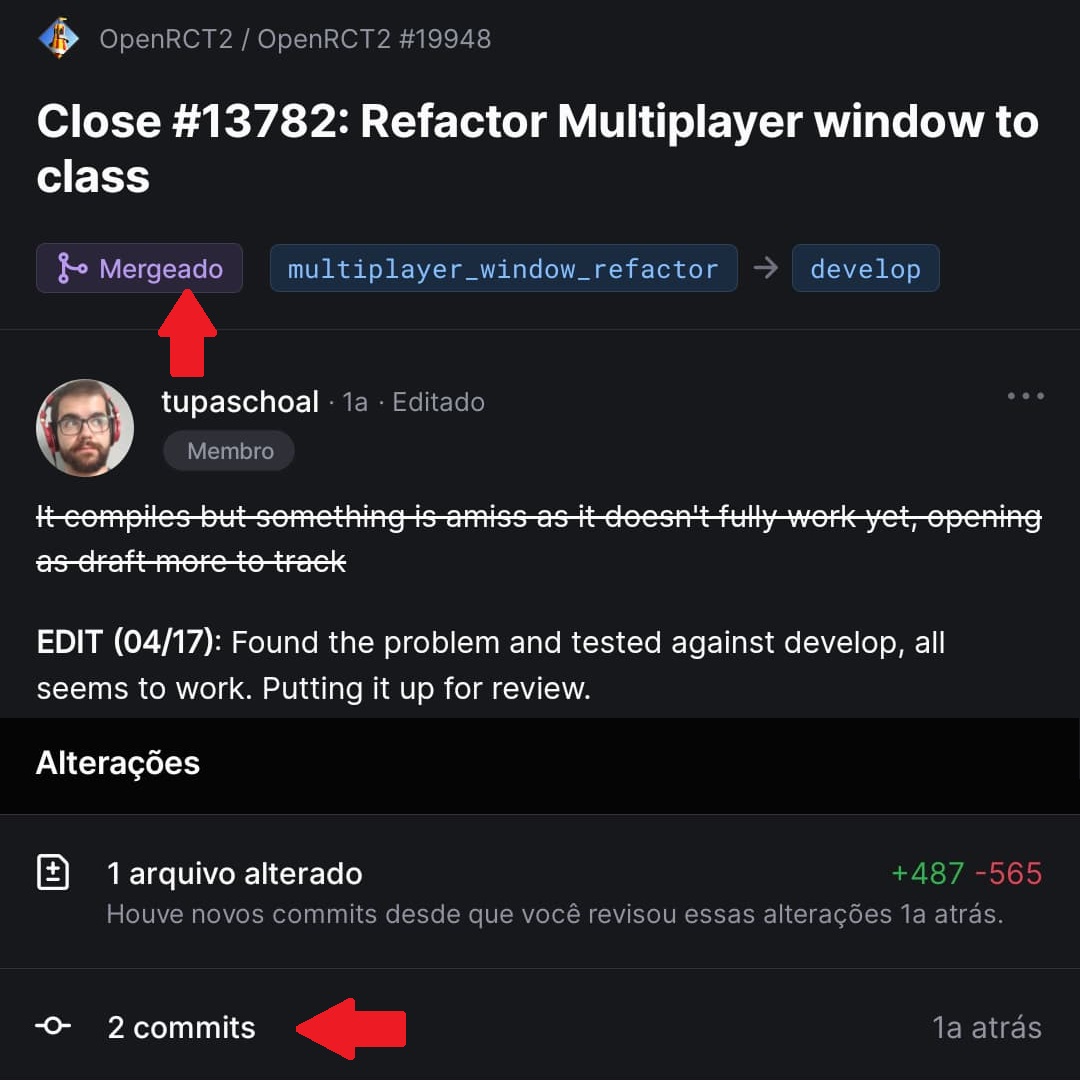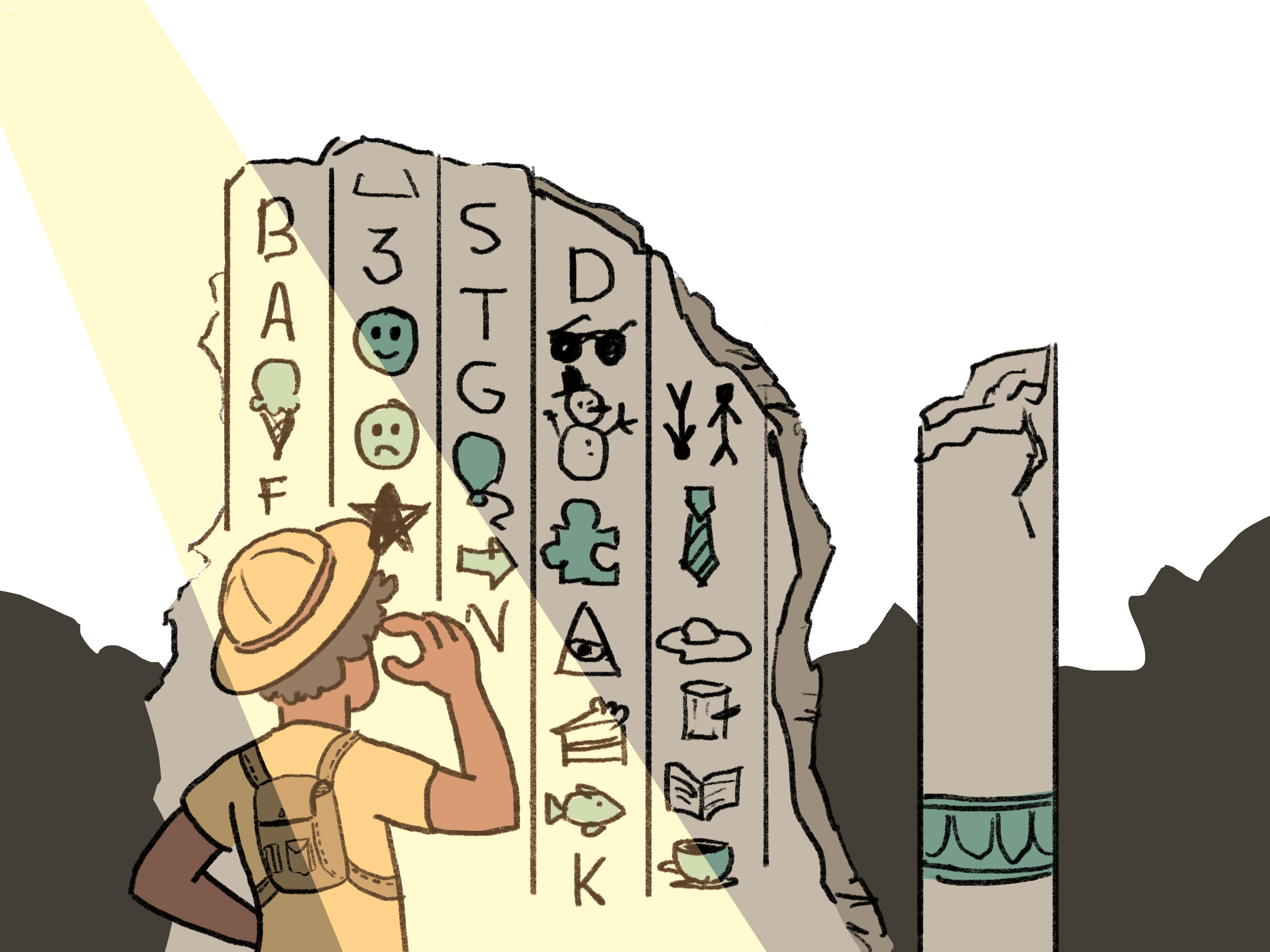Lost in Translation: the overuse of English
When I was in my early twenties1, halfway through my university journey, I would often hear phrases such as:
There is no need to translate this from English, every aspiring engineer should learn it.
or
If you translate this, then people will have a harder time when searching about it on the internet.
I won’t dive into why people would say this, but at the time it was hard to disagree: multiple job postings required English and for things such as programming languages, searching for the keywords in English really did yield better results more often. What ended up happening is that over time we kept incorporating more and more of those words into our vocabulary and language and even despised the usage of the translated terms, which led us to this:

This is a screenshot of the GitHub app on my phone, where I was viewing some changes I had made in the OpenRCT2 project2. You can see that the app itself is set to Portuguese, but if you squint (or just skip to the big red arrows I put there), you can notice there are plenty of “English” words thrown in 3. One of them is a proper English verb, commit, but the other is not, mergeado (and not Portuguese either). These are not the only occurrences, here is a small compilation of weird translations I found on the app:
| Original word | Portuguese “Translation” |
|---|---|
| merged | mergeado |
| commit | commit |
| pull requests | solicitações de pull |
| issues | issues |
| push notification types | configurar notificações push |
| deployment review | revisão de deploy |
| pull request review | revisão de pull request |
| workflow runs | workflow roda |
I don’t want to pick on GitHub, after all translating is hard and the fact that they are localising most of the app can help in getting it usable by more people, but then who does it help to get a mix of English, Porglish and Portuguese? Especially when the word is meaningful and would help you understand what you are doing, such as the merge keyword on the git workflow.

Drawing kindly made by my friend Hamilton
That leads me to think on how we got to this point: are we brazilians to blame for wanting to stick to the “original” foreign terms for too long? Do we then suffer from not being able to translate them anymore because people will feel cringe 🫥? The Spanish translation surely didn’t care 4, but who knows if their speakers like it or not and whether it was an organic movement in favor of the translations or not.
It’s not an exclusive phenomenon of the programming world, we can see several business environments where people have been overusing English for words, even when we have clear and even simpler translations for them 5, as well as the countless store names in foreign languages to look fancier. To me it seems we are taking it too far.
I think it’s time to break free in favor of not losing our cultural identity, to prevent the world population from becoming even more homogeneous. Or maybe not, some might say that people now have somewhat easy access to machine translation of texts and conversations, especially with AI, and that they should just say however they like and let the computer handle it. In the meantime I’ll be doing my best to find suitable translations for those terms.
Trust me, it hurt to write this statement 🧓 ↩︎
OpenRCT2 is a project to recreate the infamous Roller Coaster Tycoon game fully in the open source world. I’m currently one of the maintainers and have been a contributor there since 2019, with varying degrees of activity. ↩︎
Ignore the description I put there in English, after all that is the only language I can communicate with the team! ↩︎
Here’s the table extended to show how it looks in Spanish. I think most of their equivalents in Portuguese would sound great:
↩︎Original word Portuguese “Translation” Spanish Translation merged mergeado fusionado commit commit confirmaciones pull requests solicitações de pull solicitudes de cambios issues issues propuestas push notification types configurar notificações push tipos de notificaciones Push deployment review revisão de deploy revisión de Despliegue pull request review revisão de pull request revisión de solicitud de cambios workflow runs workflow roda ejecuciones de flujo de trabajo I won’t be a hypocrite, I myself say it sometimes. I think it is particularly hard to avoid when everyone around us is doing it and when you work in a company that does require frequent communication in English, but I’m trying my best not to do it. ↩︎